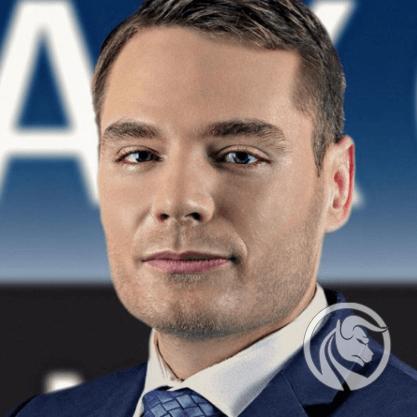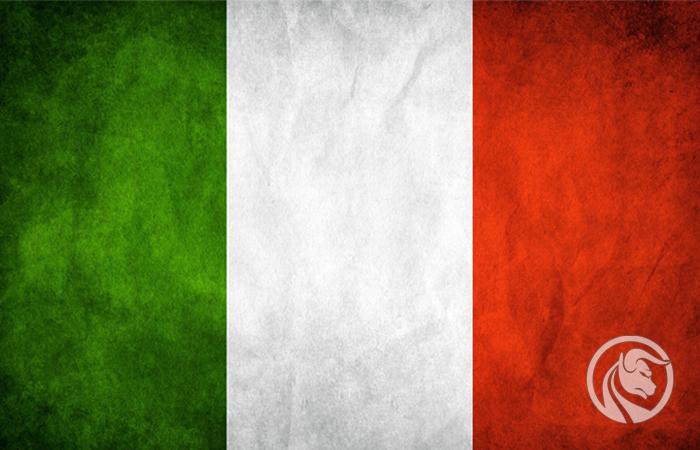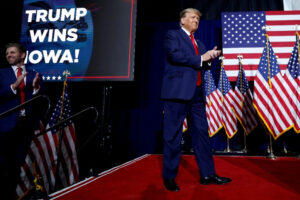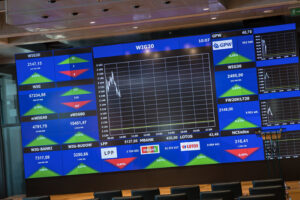Presidential elections in Italy: political uncertainty and risks for the markets
The process of electing a new president of Italy begins. Voting should start in the third week of January. Usually this event is irrelevant to the markets. This time, however, the situation is different. The current president, Sergio Mattarella, who could run again, is not going to run. He will cease to hold office on February 3. His successor is predominantly predicted by the current prime minister, Mario Draghi. This would result in early elections and another period of political instability in Italy at the worst possible moment. This is by far the first time in recent history that an Italian presidential election has been economically significant. For the financial markets, this could mean a risk in the tail of the decay.
Open race
There are no official candidates for the Italian presidential election. Members of both houses of parliament, together with representatives of regional authorities, participate in a secret ballot - they can vote for anyone, provided that they would have Italian citizenship and would have turned 50. It happened that candidates were cast for such candidates as the porn actor Rocco Siffredi or the famous actress Sophia Loren. The winner must obtain a two-thirds majority in the first round and an absolute majority in subsequent turns if consensus cannot be reached.
In recent months, Mario Draghi was selected as the leader of the presidential race. On December 22, he made his first official statement about his candidacy. He described himself as "a grandfather in the service of the institution." Other potential candidates include the current Minister of Justice and former judge of the Constitutional Court, Marta Cartabia, as well as three former prime ministers (Romano Prodi, Paolo Gentiloni and Silvio Berlusconi). Only Berlusconi is officially running for the office of president. History teaches that most people named as potential presidential candidates will fail; the exception is Draghi, and perhaps Berlusconi, who has an unparalleled talent for vote-buying. The race is therefore very open and can turn out to be very surprising.
About the Author
 Christopher Dembik - French economist of Polish origin. He is global head of macroeconomic research at a Danish investment bank Saxo Bank (a subsidiary of the Chinese company Geely serving 860 HNW customers around the world). He is also an advisor to French parliamentarians and a member of the Polish think tank CASE, which took first place in the economic think tank in Central and Eastern Europe according to a report Global Go to Think Tank Index. As a global head of macroeconomic research, he supports branches, providing analysis of global monetary policy and macroeconomic developments to institutional and HNW clients in Europe and MENA. He is a regular commentator in international media (CNBC, Reuters, FT, BFM TV, France 2, etc.) and a speaker at international events (COP22, MENA Investment Congress, Paris Global Conference, etc.).
Christopher Dembik - French economist of Polish origin. He is global head of macroeconomic research at a Danish investment bank Saxo Bank (a subsidiary of the Chinese company Geely serving 860 HNW customers around the world). He is also an advisor to French parliamentarians and a member of the Polish think tank CASE, which took first place in the economic think tank in Central and Eastern Europe according to a report Global Go to Think Tank Index. As a global head of macroeconomic research, he supports branches, providing analysis of global monetary policy and macroeconomic developments to institutional and HNW clients in Europe and MENA. He is a regular commentator in international media (CNBC, Reuters, FT, BFM TV, France 2, etc.) and a speaker at international events (COP22, MENA Investment Congress, Paris Global Conference, etc.).
Last week, Giuseppe Conte, leader of the far-right Five Star Movement, the largest party in Italian parliament, said he would prefer a woman as the new president. Theoretically, it favors Cartabia. Such a change would be symbolic. About 65% of the members of parliament are men. It would also be a strategic move for Conte.
According to the latest polls, his party would suffer a devastating defeat in the event of an early election. Two other groups are against Draghi's candidacy: Berlusconi's Forza Italia and Matteo Salvini's anti-immigration and eurosceptic League. The rest, the Italian brothers of Giorgia Meloni, the Democratic Party of Enrico Letta and Italia Viva by Matteo Renzi, have not yet made a decision. Most of the Italian political leaders would have preferred a candidacy to that of Draghi. Investors would also prefer Draghi to remain prime minister until the end of his term. However, there is as yet no consensus on the other candidate. Fortunately, it's still early.
Draghi's work is not over yet
Draghi restored political stability in Italy. Copes well with the health crisis and its consequences. In addition, it finalized and approved the arduous process of defining projects and meeting the original goals and objectives of reforms in order to access funds under the "EU's Future Generation" reconstruction package. Italy is the main beneficiary of this package. They should soon receive the first tranche of a total amount of EUR 191,5 billion (including both loans and grants). However, there is still a long way to go. Draghi did not have enough time to try to solve the structural problems of the Italian economy. One of them is a slowdown in productivity. According to OECD data, Italian companies with fewer than 10 employees, which make up a large part of Italy's business model, show lower levels of productivity than their counterparts in other countries.
The added value generated by one employee of an Italian company is on average 35% lower than an employee of a German company. Among the possible reasons for the low productivity of Italian enterprises, the low level of expenditure on research (according to the latest available data, 1,4% of GDP in 2018 compared to the average value of 2,4% in OECD countries) is mentioned, along with insufficient expenditure on education and cumulative delays in implementing new technologies. In this context, the investments specified by the Italian government (see table below), which will be financed under the reconstruction package "The EU's Next Generation", could provide an excellent opportunity to accelerate the growth of labor productivity. In our opinion, the implementation of these investments will require political stabilization, which can only be guaranteed by Draghi.
Major investments to improve economic growth and productivity listed by the Italian government (originally presented in autumn 2020 by former Prime Minister Giuseppe Conte). Source: Italian Ministry of Economy and Finance, Saxo Bank Research & Strategy.
- Energy Transition: EUR 74,3 billion to invest in renewable energy production and energy efficiency in line with the European Green Deal
- Digitalisation and innovation: EUR 48,7 billion to digitize public administration and to support vertical integration of enterprises to improve competitiveness
- Health: EUR 9 billion for emergency medical services and GP services
- Infrastructure: EUR 27,7 billion for sustainable urban mobility and infrastructure investments. They include investments in the high-speed rail network and motorways, with particular emphasis on smart districts
- R&D funding: EUR 19,2 billion for education and research
What if ...?
If Draghi becomes president, it will accelerate the general election by one year - instead of 2023, it would be held in 2022. According to polls, early elections could mean a victory for the far right (the Italian League and Brothers) in the coalition with Forza Italia. This could lead to another period of political instability in Italy at the worst possible moment. The Italian presidential election has not yet been targeted by investors. In the event of an accelerated election, however, one can expect a hard revival and chaos in the market as well as volatility in the Italian Treasury Bond (BTP) market.
Other elections in 2022:
- Parliamentary elections in Portugal (30 January)
- Parliamentary elections in Hungary (April - exact date to be confirmed)
- Presidential elections in France (10 April)
- Parliamentary elections in France (12 January)
- Japan House of Counselors Elections (25 July)
- Brazil general election (October 2)
- United States by-elections (8 November)






















![Forex Club – Tax 9 – Settle tax on a foreign broker [Download the Application] Forex Club - Tax 9](https://forexclub.pl/wp-content/uploads/2024/02/Forex-Club-Podatek-9-184x120.jpg?v=1709046278)
![Trading View platform – solutions tailored to the needs of traders [Review] trading view review](https://forexclub.pl/wp-content/uploads/2024/03/trading-view-recenzja-184x120.jpg?v=1709558918)
![How to connect your FP Markets account to the Trading View platform [Guide] fp markets trading view](https://forexclub.pl/wp-content/uploads/2024/02/fp-markets-trading-view-184x120.jpg?v=1708677291)
![How to invest in ChatGPT and AI? Stocks and ETFs [Guide] how to invest in chatgpt and artificial intelligence](https://forexclub.pl/wp-content/uploads/2023/02/jak-inwestowac-w-chatgpt-i-sztuczna-inteligencje-184x120.jpg?v=1676364263)


![WeWork – the anatomy of the collapse of a company valued at $47 billion [WeWork, part II] wework bankruptcy story](https://forexclub.pl/wp-content/uploads/2024/04/wework-bankructwo-historia-184x120.jpg?v=1711729561)
![Adam Neumann – the man who screwed up Softbank [WeWork, part AND] adam neumann wework](https://forexclub.pl/wp-content/uploads/2024/04/adam-neumann-wework-184x120.jpg?v=1711728724)





![How to transfer shares to another brokerage office [Procedure description] how to transfer shares to another brokerage house](https://forexclub.pl/wp-content/uploads/2024/03/jak-przeniesc-akcje-do-innego-biura-maklerskiego-184x120.jpg?v=1709556924)

![The most common mistakes of a beginner trader - Mr Yogi [VIDEO] Scalping - The most common mistakes of a beginner trader - VIDEO](https://forexclub.pl/wp-content/uploads/2024/03/Scalping-Najczestsze-bledy-poczatkujacego-tradera-VIDEO-184x120.jpg?v=1711601376)
![Learning patience: No position is also a position - Mr Yogi [VIDEO] Scalping - Learning patience - No position is also a position - VIDEO](https://forexclub.pl/wp-content/uploads/2024/03/Scalping-Nauka-cierpliwosci-Brak-pozycji-to-tez-pozycja-VIDEO-184x120.jpg?v=1710999249)
![When to exit a position and how to minimize losses - Mr Yogi [VIDEO] Scalping - When to exit a position and how to minimize losses - VIDEO](https://forexclub.pl/wp-content/uploads/2024/03/Scalping-Kiedy-wyjsc-z-pozycji-i-jak-minimalizowac-straty-VIDEO-184x120.jpg?v=1710336731)

















